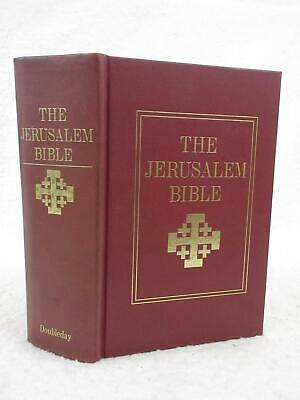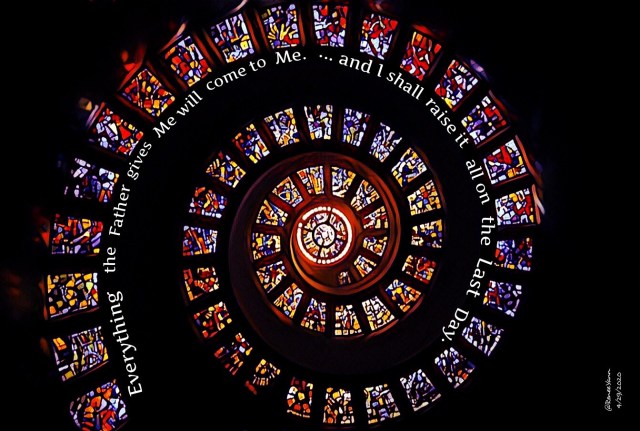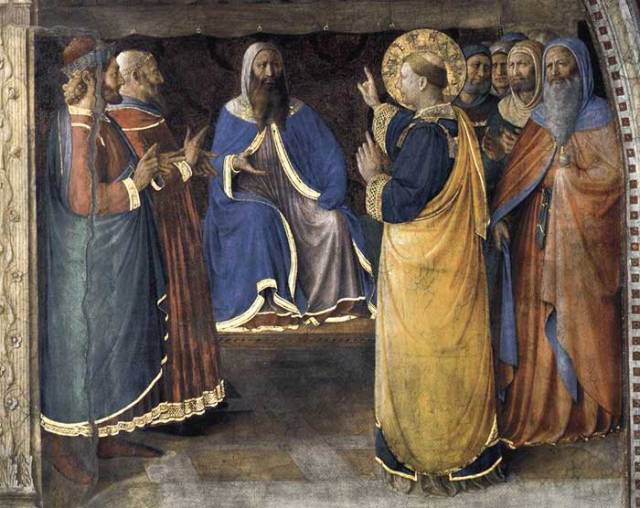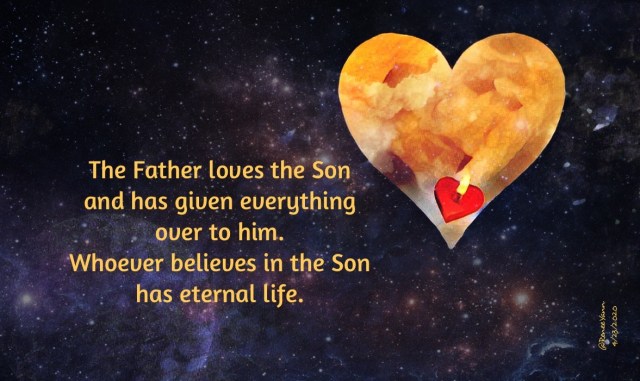Friday of the Third Week of Easter
May 1, 2020

Today, in Mercy, our Gospel is serious business. In it, Jesus reveals the lynchpin of our sacramental faith.
Amen, amen, I say to you,
unless you eat the Flesh of the Son of Man and drink his Blood,
you do not have life within you.
Whoever eats my Flesh and drinks my Blood
has eternal life,
and I will raise him on the last day.
It is a stark and shocking statement. The listening Jews “quarreled among themselves, saying, ‘How can this man give us his Flesh to eat?’.”
Down through the ages, struggling believers have grappled with the same question. Or, perhaps less preferable, complacent believers have never even considered it.
I think Jesus wanted us to consider it, absorb it, be changed by it, live within it, because “unless you eat the Flesh of the Son of Man and drink his Blood, you do not have life within you.”
Among the Christian denominations there is a range of interpretations of this teaching.
Wikipedia has a very good summary. Click to read it.
As Catholics, we believe that Christ is truly and fully present in Eucharist and that, by Communion, becomes fully present in us, the Church.
When the Church celebrates the Eucharist, the memorial of her Lord’s death and resurrection, this central event of salvation becomes really present and “the work of our redemption is carried out”. This sacrifice is so decisive for the salvation of the human race that Jesus Christ offered it and returned to the Father only after he had left us a means of sharing in it as if we had been present there. Each member of the faithful can thus take part in it and inexhaustibly gain its fruits. This is the faith from which generations of Christians down the ages have lived.
(ECCLESIA DE EUCHARISTIA, Encyclical of John Paul II)
For me, it is a truth only appreciated when approached with more than the mind. It must be apprehended with the heart and soul. God so loves us in the person of Jesus Christ that God chooses to be eternally present with us, and in us, through the gift of Eucharist.
Praying with this truth over the years has led me to read authors like Edward Schillebeeckx (Christ the sacrament of the encounter with God), Diarmuid O’Murchu (Quantum Theology), and Pierre Teilhard De Chardin (Hymn of the Universe).

But I will tell you that every time I receive the Eucharist, I let this little hymn play in my heart, one I learned for my First Holy Communion. It still unites my heart to my desired faith.
Music: Jesus, Jesus, Come to Me – sung by the Daughters of Mary
( I know the album art is not classic, but I can still believe I’m one of those little kids climbing into Jesus’s lap🤗. I think most of us are a mix of both unsophisticated and erudite theologies, so I hope you can enjoy this musical selection.)





















